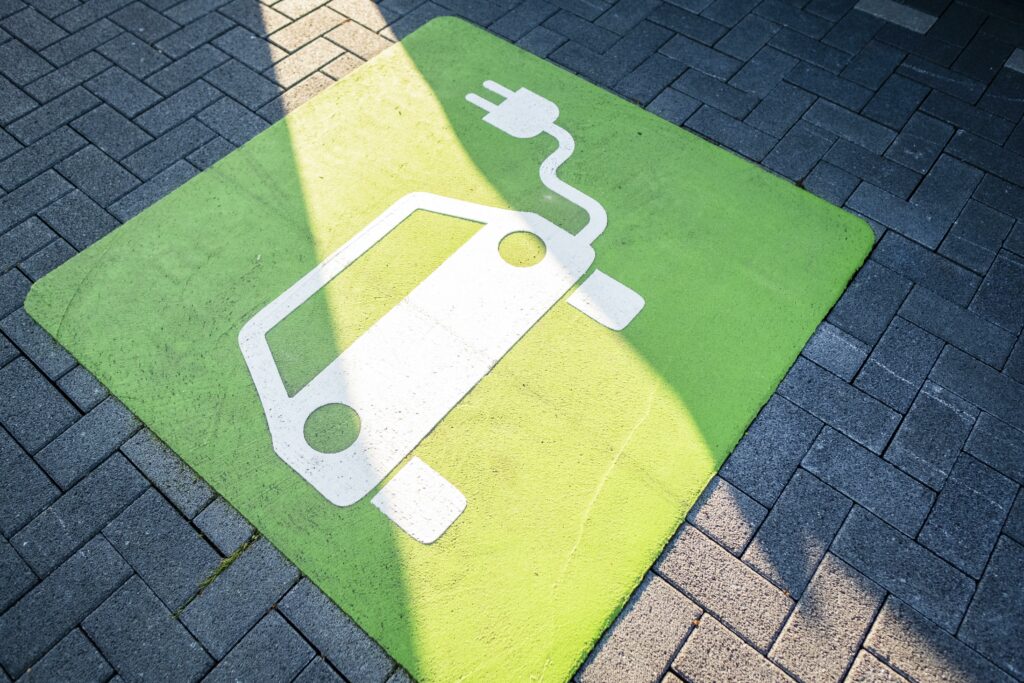BEVs outperform petrol in Germany thanks to August incentive effect
11 September 2023

Battery-electric vehicles (BEVs) outsold petrol-powered models in Germany last month. Overall, new-car registrations in the country increased 37.7% year on year in August, with 273,417 units.
Of these, 86,649 were BEVs, up 170% compared with the same month last year. This means all-electric models claimed 31.7% of the German new-car market in August. However, this success is likely thanks to the winding down of BEV incentives, which helped inflate registration rates.
The latest figures from the Kraftfahrt-Bundesamt (KBA) reveal the chasm between the different powertrains. Plug-in hybrids (PHEVs) took a particularly large year-on-year fall of 41.1%, down to 14,552 units. Petrol, which has dominated the marketplace in recent years, powered 27.6% of new cars taking to the roads, although the number of units increased by 8.9%. Diesel figures rose by 9.2%, with a market share of 14.5%.
‘Electric vehicles (EVs) continue to gain ground, in line with EV-volumes forecasts,’ explained Neil King forecasting lead at EV-volumes.com. ‘Germany is a prime example, whereby nearly one in three new cars registered in the country last month was a BEV. The all-electric share of the German new-car market is still on track to exceed 20% this year, up from 16.7% in 2022, despite the reduction in incentives in January.’
Incentive impacts
‘Currently, the growing uncertainty about the further ramp-up of e-mobility is overshadowed by the special effect of the expiry of the commercial electric-car subsidy on 1 September,’ said ZDK vice president Thomas Peckruhn, spokesman for the brand trade in Germany.
PHEV incentives came to a halt in the country at the end of last year, while those backing BEVs are scheduled for ongoing reductions between 2023 and 2025. This plan to scale back support outlines that from the beginning of September 2023, only private buyers will have access to BEV incentives. This deadline is believed to have encouraged the exceptional deliveries recorded in August.
The sudden surge of BEV registrations highlights the impact that incentives can have on a marketplace. It remains to be seen what effect the removal of environmental bonuses for non-private buyers will have on Germany’s market in the coming months.
Peckruhn explained that some manufacturers are still reducing their large order backlogs. Certain carmakers are also likely to keep registering vehicles until the end of the year to meet fleet limits or gain market share in order to hit annual targets. The further reduction of environmental bonuses scheduled to take place at the start of 2024 can be expected to keep pushing BEV growth this year.
Charging gets a boost
The ZDK has welcomed the launch of another funding programme, which backs the development of private residential charging points. Bi-directional charging technology is also included within this scheme.
The subsidy will come into play at the end of this month, covering the installation of a new charging point, solar power system and storage unit as an entire package. Those making a claim will need to have an EV, or at least have one on order. The Federal Ministry of Transport has made €500 million available as part of the programme.
‘In order to bring the incentives for charging to broad sections of the population, it would be more effective to promote the individual components, as there are already private individuals who already have parts of this package. In this way, acceptance among the population for the transformation to e-mobility could be further increased, combined with a broader range of affordable e-vehicles,’ said Peckruhn.
Production and expectations
Domestic car production in Germany reached 266,800 cars in August, up 15% year on year. However, as the VDA pointed out, this is half the production growth recorded in May (after taking working days into account).
According to the ifo Institute, carmakers’ business expectations plummeted last month. Nearly half of the automotive manufacturers replying to the organisation’s business survey complained that a lack of orders was impeding production. However, order books do appear full enough to cover the next six months.
‘Sentiment has deteriorated most noticeably among automakers, while suppliers remain fairly satisfied with their current situation,’ said Anita Wölfl, a specialist at the ifo Centre for Industrial Organisation and New Technologies.
‘Some suppliers possess specialized technical expertise, which can advance electromobility and autonomous driving as well as alternative mobility solutions – not just in Germany, but worldwide,’ Wölfl added.
The year so far
Supported by positivity in recent months, the German new-car market grew by 16.5% in the year to date, with 1.9 million registrations in total. This continued growth, while impressive, does need to be balanced against a weak 2022, which continues to magnify yearly comparisons. Set against pre-COVID 2019, registrations in the country are still down 23.3% in the year to date.
Forecasts provided by EV-volumes.com point towards year-on-year growth of 5.9% by the end of 2023. After this high point, the market can be expected to hold steady over the following seven years, with consecutive year-on-year increases in new-car registrations. Declines are then projected in 2031 and 2032, with marginal recoveries in the following years.



